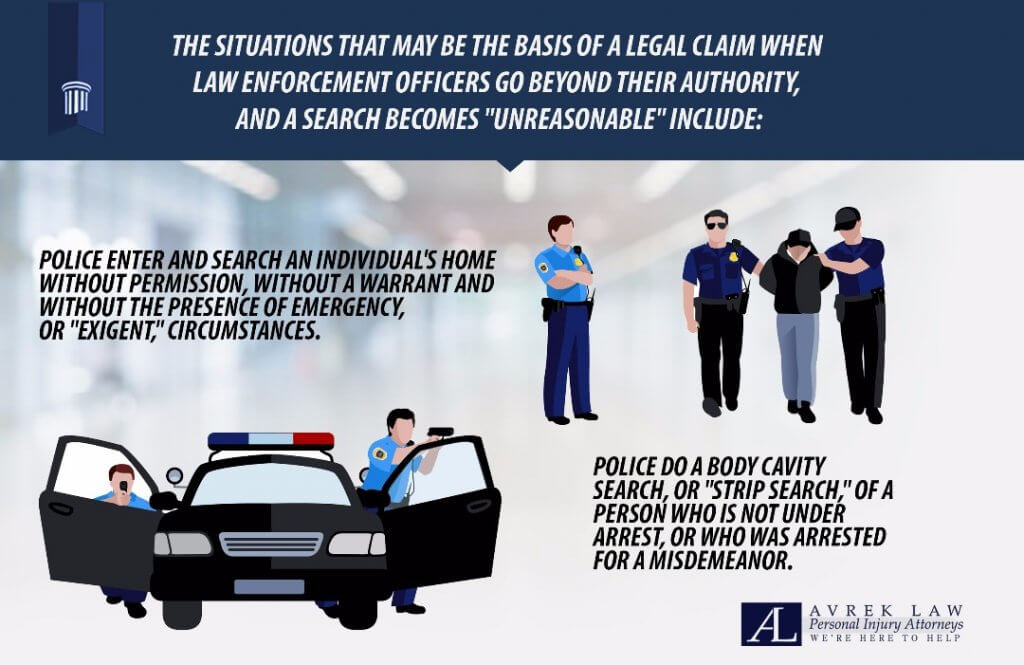We expect police to work hard preventing crime and keeping us safe. To be sure, the vast majority of police officers are dedicated to the public good and we are immensely grateful to these law enforcement professionals. However, there are law enforcement officials who ignore their sworn duty and violate the rights of law-abiding citizens. In these situations, the innocent victim of police brutality may have the right to make a legal claim against the abusive officers and the police department where they work.
The Role of the Police
Police have broad authority to carry out their duties—as they should. Nevertheless, there are limits to these powers. Legal claims for police brutality or abuse may arise when law enforcement officers go beyond the limits of their authority and cause needless injury.
The following are some of the types of legal claims arising from police brutality or abuse.
Excessive Force
Police may only use the amount of force that is reasonably necessary to carry out their lawful duties. Whether force is “excessive” depends on the reason why police attempted to stop or arrest an individual, the way that the person responded to police requests or demands and the circumstances surrounding the encounter.
Thus, it might be reasonable for law enforcement officers to physically grab and restrain a person who was armed, committed a violent crime or physically resisted arrest. Police could do this based on a reasonable belief that the individual posed immediate danger, even if their belief was wrong.
However, police may use no more force than necessary. They should not hit, rough-up or otherwise hurt a person who is unarmed, acts in a non-threatening manner and follows their directions. Even if a person is aggressive, police must stop using force as soon as they restrain the individual. Thus, any legal claim for “excessive force” must be based on injury resulting from force beyond whatever was necessary.
False Arrest or Imprisonment
This claim arises when police take an individual into custody without an arrest warrant and without probable cause. An officer would have probable cause if he or she actually saw the person commit a serious crime or had a reasonable belief that the person had or was just about to commit a serious crime.
The reasonableness of the officer’s belief is based on the information available at the time of the arrest, even if it turns out to be wrong. When police lack this legal justification, the person taken into custody may have a claim for false arrest.
Malicious Prosecution
An individual may be the victim of malicious prosecution when a law enforcement official begins a criminal proceeding without probable cause and some sort of malice toward the victim, resulting in the criminal proceeding ending in the victim’s favor (without a conviction). This claim arises because the law states that no one should be subjected to the extreme emotional stress, embarrassment and financial expense often involved in a criminal prosecution that lacks a legitimate basis.
Unreasonable Search
In recent years, Congress and federal courts have responded to terrorist attacks, drug trafficking and school violence by expanding police powers. Law enforcement officers may ask every person for identification and may check for weapons at airports, schools and other public buildings. In addition, police can stop a person in any public place, if the officer has reasonable suspicion that a crime has been committed and that person committed it. During this kind of non-custodial stop, the officer may do a pat-down search to make sure the individual is not carrying a weapon.
There still are occasions when law enforcement officers go beyond their authority, and a search becomes “unreasonable.” The situations that may be the basis of a legal claim include:
- Police enter and search an individual’s home without permission, without a warrant and without the presence of emergency or “exigent” circumstances
- Police do a body cavity search strip search of a person who is not under arrest or who was arrested for a misdemeanor

Rights of Pre-Trial Detainees
Even if police have a lawful basis to make an arrest, the individual may have a legal claim for injuries that occur in the detention facility or jail. At that point, law enforcement officials have complete control over the detainee. Therefore, they have an obligation to promptly determine his or her physical and psychological needs, provide proper medical treatment, food and shelter, and protect the detainee from other inmates. Injury resulting from neglect during pre-trial detention may be the basis for a legal claim against the law enforcement agency that operated the facility.
Complex Legal Issues in Police Brutality Cases
In every police abuse case, the first critical issue is whether or not the officers were doing their job properly or had a reasonable belief that they were doing so at that time. This defense is sufficient to defeat the claim, even if the victim suffered severe emotional distress.
Proof that the law enforcement officers were careless or negligent is not enough to succeed in this type of case. Instead, the victim must have evidence that police knew they were acting in an unreasonable or unlawful manner and intentionally caused injury. Needless to say, only an experienced attorney can handle a police brutality case.
To make a proper claim, the attorney must investigate all relevant evidence and evaluate the circumstances surrounding the police conduct and the victim’s injuries. If you or a loved one was injured by federal, state, county or local law enforcement officers and you believe that your injury resulted from their excessive force or abuse of authority, it is important to talk with a police brutality lawyer with experience in your state’s and federal police brutality and civil rights laws.
How much is your case worth?
Get a free case evaluation
